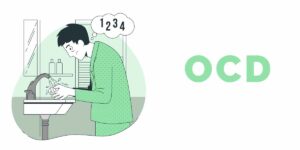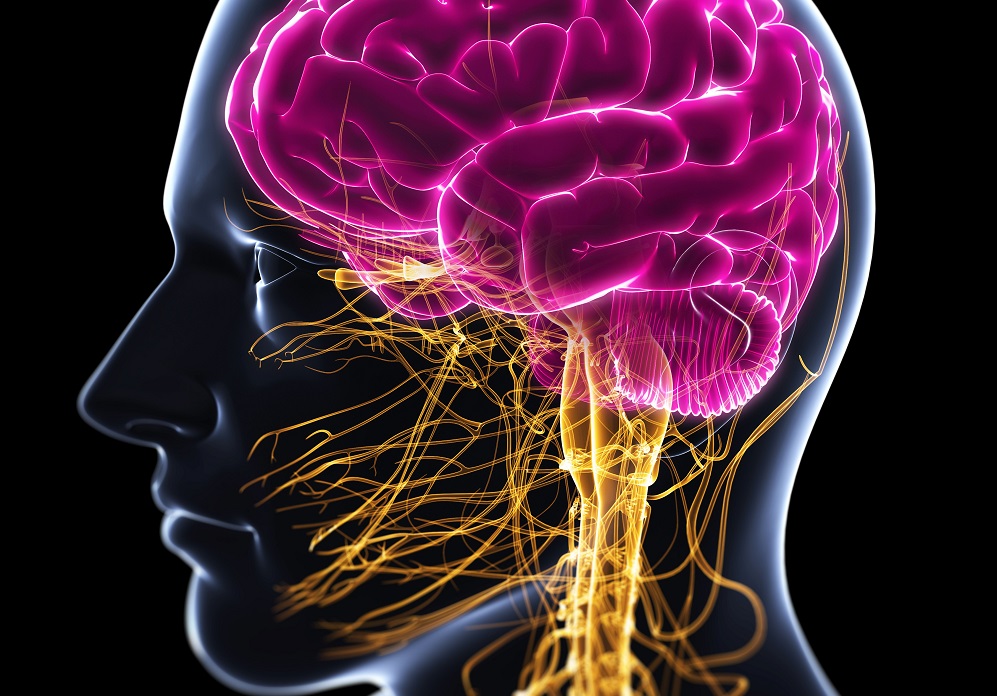Do you have a hard time resisting the urge to touch things multiple times? If so, you may be suffering from OCD – obsessive-compulsive disorder. OCD is a mental illness that causes people to experience intrusive thoughts and urges that they can’t control. These thoughts and urges often lead to repetitive behaviors, such as the compulsion to touch things multiple times. Unfortunately, OCD can be very debilitating and can interfere with daily life activities. If you think you may be suffering from OCD, please see a doctor for help. There is no cure for OCD, but there are treatments available that can help lessen the symptoms.
Contents
- 1 What Is OCD?
- 2 What Does “Compulsion To Touch Multiple Times” Mean?
- 3 Different Forms of Compulsion To Touch Multiple Times
- 4 Causes of Compulsion To Touch Multiple Times
- 5 Negative Impacts of Compulsion To Touch Multiple Times
- 6 How To Manage Compulsion To Touch Multiple Times?
- 7 Effective Treatment Options For Compulsion To Touch Multiple Times
- 8 Conclusion
What Is OCD?
 OCD is an anxiety disorder that causes people to have unwanted and repetitive thoughts, feelings, behaviors, and sensations (obsessions). People with OCD might have trouble touching things multiple times because they fear that something bad will happen if they don’t. OCD can be a very debilitating disorder, causing people to avoid certain activities or places altogether.
OCD is an anxiety disorder that causes people to have unwanted and repetitive thoughts, feelings, behaviors, and sensations (obsessions). People with OCD might have trouble touching things multiple times because they fear that something bad will happen if they don’t. OCD can be a very debilitating disorder, causing people to avoid certain activities or places altogether.
There are also certain compulsions that people with OCD might feel the need to do to relieve their anxiety. These compulsions might include things like washing their hands multiple times, touching objects a certain number of times, or checking to make sure that doors are locked or appliances are turned off. People with OCD often know that their thoughts and behaviors are irrational, but they can’t seem to stop them.
OCD can be a very isolating disorder, as people with OCD might not want to tell anyone about their fears or compulsions for fear of being ridiculed or judged. However, it’s important to understand that OCD is a real and serious disorder that should be treated by a mental health professional.
What Does “Compulsion To Touch Multiple Times” Mean?
 Compelling someone to touch things multiple times is a compulsion that is often seen in people with OCD. This can take the form of tapping, re-reading, or repeating words or actions over and over again. It can be extremely distressing for both the individual suffering from OCD and those around them.
Compelling someone to touch things multiple times is a compulsion that is often seen in people with OCD. This can take the form of tapping, re-reading, or repeating words or actions over and over again. It can be extremely distressing for both the individual suffering from OCD and those around them.
These compulsions also often come with certain rules and rituals that must be followed for the person to feel relief from their anxiety. For example, they may tap something a certain number of times or have to touch things in a particular order.
There are many possible explanations for why someone might develop this type of OCD. It could be due to genetic factors, brain abnormalities, or environmental triggers. Whatever the cause, it is important to seek professional help if you or someone you know is struggling with this condition.
The compulsion to touch multiple times is not only seen in people with OCD but also in those with autism spectrum disorder and other conditions. While it can be difficult to understand why someone feels the need to touch things multiple times, it is important to remember that they are not doing it on purpose and that they cannot help it.
Different Forms of Compulsion To Touch Multiple Times

There are many different forms of compulsion to touch things multiple times. Some people have to touch every object they see, regardless of its size or importance. Others might have to touch a specific number of objects, such as three light switches or doorknobs, before feeling comfortable enough to move on. Still, others might have to touch things in a very particular order or pattern.
For example, someone with OCD might have to touch all the books on a shelf in alphabetical order before moving on to the next shelf. Or they might have to touch every other item in a store aisle before leaving. No matter what the form of the compulsion, it is always time-consuming and often prevents people with OCD from completing simple tasks or enjoying life experiences.
Compulsions to touch things multiple times are often rooted in a deep fear or anxiety. For some people, the fear is of contamination. They might believe that if they don’t touch an object multiple times, they will be contaminated by it. Others might have a fear of losing control or making a mistake. Touching things multiple times gives them a false sense of security and helps to ease their anxiety.
Another form of compulsion to touch things multiple times is related to superstitions. Some people believe that touching things a certain number of times will bring them good luck or keep them safe from harm. Others might touch objects repeatedly because they think it will prevent something bad from happening, such as their house burning down.
Some other people have compulsive touching behaviors that are less easy to explain. They might touch things because it feels good or because they are bored. Whatever the reason, compulsively touching objects is a difficult habit to break and can cause a lot of distress in a person’s life.
Causes of Compulsion To Touch Multiple Times

There are many causes of compulsions, and they can be different for everyone. Some of these reasons are:
Genetics
One of the main causes of OCD is genetics. If you have a family member who suffers from OCD, you’re more likely to develop the disorder yourself. Sometimes people may have a genetic predisposition to OCD, but it may not be activated until later in life. Sometimes genetics also play a role in how severe OCD symptoms are.
Brain Abnormalities
Certain brain abnormalities can cause OCD. One of these is called the serotonin transporter gene, which is responsible for transporting serotonin in the brain. People with this gene are more likely to develop OCD. Another brain abnormality that has been linked to OCD is a deficiency in the neurotransmitter GABA. This can lead to problems with anxiety and fearfulness, which may trigger compulsions.
Environmental Triggers
Sometimes environmental factors can trigger OCD behaviors. For example, if someone experiences a traumatic event, they may start exhibiting compulsions as a way of coping with the trauma. Other times, stress or changes in routine can lead to an increase in OCD symptoms.
Mental Health Disorders
In some cases, compulsions may be a symptom of another mental health disorder. For example, people with an autism spectrum disorder or Tourette’s syndrome may have compulsions as part of their condition. In other cases, OCD may develop along with other mental health disorders, such as depression or anxiety. If you think you might have OCD, it’s important to see a mental health professional for an evaluation.
There may be many causes for compulsions, but the important thing to remember is that if you or someone you know is struggling with this condition, professional help is available. Many resources and treatments can be very effective in managing OCD symptoms.
Negative Impacts of Compulsion To Touch Multiple Times
There are many negative impacts of having the compulsion to touch things multiple times. One is that it takes up a lot of time. For example, if you have to touch every doorknob three times before you can leave your house in the morning, that’s going to add an extra fifteen minutes or so to your daily routine.
Some of these negative impacts are:
Socially Awkwardness
One of the main impacts is that it can make you socially awkward. If you have to touch things multiple times in front of other people, they might think you’re strange or weird. This can make it hard to make friends and fit in with social groups. Sometimes there may be many things you want to do, but can’t because you are too afraid of how other people will react if they see you compulsively touching things.
Takes Up a Lot of Time
As mentioned earlier, having this compulsion can take up a lot of time. If you have to touch everything multiple times, it can add minutes or even hours to your day. This can make it hard to get things done and meet deadlines. It also means you might have to miss out on activities you enjoy because you can’t fit them into your schedule.
Can Be Exhausting
Another negative impact is that it can be exhausting, both mentally and physically. If you are constantly touching things, it can be tiring and stressful. This can lead to anxiety and depression. It can also make it hard to concentrate or focus on anything else. It may also be hard to get a good night’s sleep if you are worried about touching things all the time.
Anxiety
Another negative impact is anxiety. If you’re constantly worrying about whether or not you’ve touched something enough times, it can be very stressful. This stress can lead to anxiety and panic attacks. It can also make it hard to relax or enjoy your life. Anxiety also results in physical symptoms such as sweating, shaking, and a racing heart.
These are just some of the negative impacts of having OCD and compulsively touching things multiple times. If you or someone you know is struggling with this, there is help available.
How To Manage Compulsion To Touch Multiple Times?

Managing cravings can be exceptionally troublesome. A few people with OCD will in general have more than one sort of craving. The most well-known are checking, washing, and rehashing behaviors.
The best way to deal with a craving is to get it without yielding to it. When you get the longing to do your compulsion, attempt to do something else completely that requires your full consideration. Some of these steps a person can take are:
Distract Yourself
One of the first things you can do is try to take your mind off of whatever is causing your compulsions. If you can’t stop thinking about a certain thing, try to engage in another activity that will occupy your mind. There may be many things that can help you focus your attention elsewhere, so find what works best for you.
Expose Yourself to What You Fear
This may seem counterintuitive, but sometimes the best way to deal with fear is to confront it. If you’re afraid of germs, for example, try not to avoid places where there might be bacteria. This will only make your fear worse. Instead, try to slowly expose yourself to situations that trigger your compulsions and work up to them gradually.
Challenge Your Thoughts
If you have OCD, chances are you have some negative or intrusive thoughts that contribute to your compulsions. For instance, if you’re afraid of getting sick, you might have the thought “If I don’t wash my hands, I’ll get sick.” But this isn’t always true. Just because you have a thought doesn’t mean it’s true. So try to challenge your negative thoughts and question them.
Find a Support Group
It can be helpful to talk to others who understand what you’re going through. There are many online and in-person support groups for people with OCD. These groups can provide moral support and practical tips for dealing with compulsions. Many therapist-led OCD treatment programs can be helpful.
Seek Professional Help
If your OCD is severe and you’ve tried to manage it on your own, but haven’t been successful, it might be time to seek professional help. There are many effective treatments for OCD, so don’t hesitate to reach out for help if you need it. A therapist can work with you to identify the root of your compulsions and develop a plan to address them. If necessary, they can also prescribe medication to help manage your symptoms.
OCD can be a difficult disorder to live with, but there are many ways you can cope with it. These tips are just a few of the things that may help you manage your compulsions. If you find that your OCD is impacting your quality of life, don’t hesitate to seek professional help.
Effective Treatment Options For Compulsion To Touch Multiple Times
There are many effective treatment options for OCD, and the most effective approach depends on the individual. Some of these are:
Medications
Medications are one of the most common treatments for OCD. Antidepressants are often used to treat OCD, as they can help to reduce obsessions and compulsions. These medications are often used in combination with therapy. These medications are typically taken for a long period, as they can take several weeks or months to be effective.
Psychotherapy
Psychotherapy is an effective treatment for OCD. This type of therapy can help to identify and change negative thoughts and behaviors. Cognitive behavioral therapy (CBT) is a type of psychotherapy that is particularly effective in treating OCD. Exposure and response prevention (ERP) is a type of CBT that involves exposure to the things that trigger your obsessions, without engaging in the compulsions. This can help to reduce the fear and anxiety associated with the obsessions.
Self-Help
There are many self-help resources available for people with OCD. These resources can provide support and information about OCD. There are also many online support groups available.
Support from family and friends
The support of family and friends can be invaluable for people with OCD. This support can help to reduce the isolation that often accompanies OCD. It can also motivate them to seek treatment and stick with it.
Self-help Strategies
Another option for treatment is to use self-help strategies. This means that you would be in charge of your treatment, without the help of a professional. Some self-help strategies that can be effective for OCD are:
- Keeping a journal to track your thoughts and compulsions
- Practicing relaxation techniques, such as deep breathing or progressive muscle relaxation
- Exposing yourself to the things that trigger your obsessions, in a controlled and safe way
- Putting off performing compulsions until later, or gradually reducing the number of times you perform them
Making these changes can be difficult, and it is important to have support from family and friends when making these changes.
Conclusion
Comparison to touch things multiple times is something that can be very difficult to control. It can be an embarrassing and frustrating thing to deal with daily. While there are treatments available, they may not work for everyone. The best way to manage this disorder is to find ways to cope with the urges and minimize the amount of stress in your life.
In this blog post, we have looked at what OCD is, how it can manifest, and some of the ways that people have coped with this disorder. If you or someone you know suffers from OCD, remember that you are not alone. There are many people out there who understand what you are going through and who can offer support.
Hope this article was of help to you! If you are suffering from OCD, you may seek help from Therapy Mantra. We have a team of highly trained and experienced therapists who can provide you with the tools and skills necessary for overcoming OCD. Contact us today to schedule an online therapy or download our free OCD treatment app on Android or iOS app for more information.


